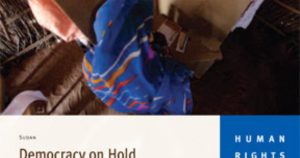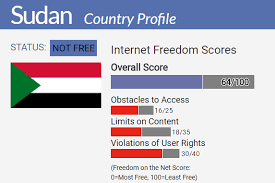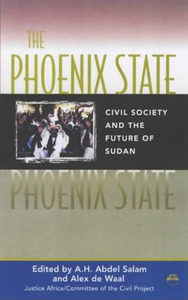After months of protests, President Omar al-Bashir has been forced (HT: Foreign Policy) to step down by the military and is reportedly under house arrest. Bashir has ruled Sudan for 30 years, and has been accused of war crimes and crimes against humanity by the International Criminal Court.
Sudan’s defense minister said on state television that the military will oversee a transitional government (BBC/CFR) for two years, at which point the country will hold elections. An association of workers’ unions that helped organize the protests urged people to remain in the streets Friday (CNN) to call for a civilian government.
“This is potentially new dawn for Sudan,” said Rashid Abdi, a regional analyst for the International Crisis Group. “It shows that even most entrenched dictatorships are vulnerable. The future is uncertain, but there is now a better chance to engineer a viable, inclusive transition.”

Human Rights Watch
But the Sudanese Professionals Association, a civil society group in vocal opposition to Bashir’s government, rejected what it called “a coup to reproduce the faces and institutions that our great people revolted against,” the Post adds.
“Hold the squares and the roads that we liberated by force and courage until the handover of authority to a civilian transitional government that expresses the forces of the revolution,” it wrote on Twitter. “The ones who destroyed the country and killed its people are trying to steal every drop of blood and sweat that our great people shed in the revolution that has shaken the throne of tyranny.”
 Their demands are clear—a democratic Sudan under civilian leadership, says Jon Temin, director of Freedom House’s Africa programs. In this exchange, he answers questions about what recent developments might mean for the prospect of democratization.
Their demands are clear—a democratic Sudan under civilian leadership, says Jon Temin, director of Freedom House’s Africa programs. In this exchange, he answers questions about what recent developments might mean for the prospect of democratization.
Informed by the demands of Sudanese civil society, and in concert with other donors and regional powers, the United States should articulate the transitional milestones and political conditions that must be met to gain access to each tranche of a recovery package that will address Sudan’s massive debt and help jumpstart the sickly economy, writes Council on Foreign Relations analyst Michelle Gavin.
The international community has an opportunity to influence what happens next, according to a consortium of civil society groups, including partners of the National Endowment for Democracy.
 A “sit back and watch” approach plays into the hands of the NCP [the ruling National Congress Party] and raises the chances of a worst-case scenario violent clampdown, they state in an open letter to the international community. Strong diplomatic action could increase the chances of a much more positive set of outcomes. We the signatories of this letter therefore call on your offices to urgently consider and act on the following recommendations to:
A “sit back and watch” approach plays into the hands of the NCP [the ruling National Congress Party] and raises the chances of a worst-case scenario violent clampdown, they state in an open letter to the international community. Strong diplomatic action could increase the chances of a much more positive set of outcomes. We the signatories of this letter therefore call on your offices to urgently consider and act on the following recommendations to:
- Issue clear statements recognizing the right of the citizens of Sudan to protest, and to acknowledge and commend them for the ordered and peaceful way in which they are conducting themselves.
- Remind the government of Sudan that it will be held to account for the conduct of its security forces. These forces should uphold their responsibilities to avoid bloodshed, show restraint, and respect human rights.
 We also urge the international community to:
We also urge the international community to:
- Announce their clear support for the demands of the Sudanese people and help to set the groundwork for a peaceful transition. The international community should only engage with a democratic government, respectful of international human rights law.
But it’s been Sudan’s misfortune that their large-scale popular uprisings – in 1964 and 1985 – have been staged when the international community has not been ready to support democratization, argues Alex de Waal, the executive director of the World Peace Foundation at the Fletcher School of Law and Diplomacy at Tufts University.
The same counter-cyclical mismatch appears to be happening today, when there is little international appetite for such democratic movements, he writes for the BBC. Fearful of the possibility of chaos, as followed uprisings in Libya, Syria and Yemen, Western powers are cautious, focusing on stability.
This caution risks missing the slender opportunity for snatching a solution from the teeth of potential calamity, adds de Waal, co-editor with A. H. Abdel Salam of THE PHOENIX STATE: Civil Society and the Future of Sudan.







